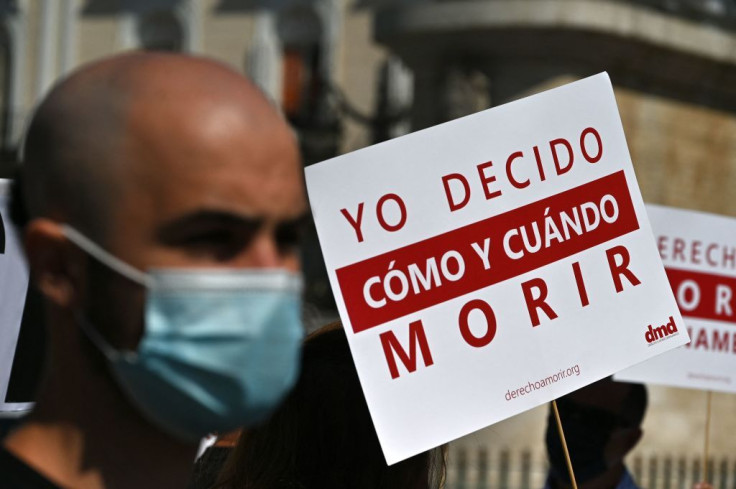Assisted suicide booths, which have long been a staple of science fiction, may soon be a reality in Switzerland. According to Swiss news outlets, the Sarco capsule, a 3D-printed assisted suicide pod, has acquired legal authority to be used by the general population.
Inventor Dr. Philip Nitschke of Australia-based international nonprofit Exit International said the Sarco "death capsule" is "activated from the inside by the person intending to die." This can be towed anywhere, such as in an idyllic outdoor setting or the premises of an assisted suicide organization.
He went on to say that the equipment was created with comfort in mind. "The capsule is sitting on a piece of equipment that will flood the interior with nitrogen, rapidly reducing the oxygen level to 1 percent from 21 percent in about 30 seconds," Nitschke told swissinfo. "The person will feel a little disoriented and may feel slightly euphoric before they lose consciousness. Death [occurs] through hypoxia and hypocapnia, oxygen, and carbon dioxide deprivation, respectively. There is no panic, no choking feeling."
Nitschke said death normally occurs after five to ten minutes of unconsciousness in such a situation. Exit International requested the country's medical review board for "senior counsel" on the legality of utilizing the device in Switzerland in 2020, he told the site, adding the organization just learned no legal difficulties are preventing the gadget's implementation.
The first and second prototypes are on display in museums and aren't "aesthetically pleasant," according to Nitschke, thus "barring any unforeseen complications," the first operational unit won't be deployed in Switzerland until 2022 (with the help of a local group). Some elements, such as a camera for communication and the recording of informed permission, are still in the works.
According to Nitschke, Exit International wants to explore means for the process to be carried out without the need for a doctor's presence for psychiatric examination.
The Sarco device is criticized by critics as being in violation of medical ethics. Dr. Daniel Sumalsy, a professor of biomedical ethics at Georgetown University and an opponent of assisted suicide that "it's bad medicine, ethics, and bad public policy." Sumalsy said the feature turns death into a sort of healing and ignores the fact that palliative care can now treat more symptoms than ever before.
Physician-assisted suicide is permitted in Switzerland and has become a common practice. Hundreds of people (primarily those with terminal illnesses) opt to end their lives this way each year. Several other European nations, including Luxembourg, Germany, Belgium, and the Netherlands, have adopted similar legislation.
At the same time, some of their neighbors tolerate different methods such as passive euthanasia or the cessation of life-sustaining treatment in specific circumstances. In physician-assisted suicide, a patient elects to die with the assistance of a medical expert, which typically entails just writing a prescription for a fatal medicine.
A medical professional uses active ways to end a patient's life without pain during euthanasia. Passive euthanasia or withdrawal treatment includes discontinuing medical interventions that prolong the patient's life.
According to The Guardian, physician-assisted suicide in Switzerland is legal only if it is done for self-motives, which means it is usually done with the help of nonprofit groups.
There were 1,300 assisted deaths were carried out in Switzerland in 2020. According to Business Insider, the number of euthanasia procedures in the Netherlands grew by 9 percent from 2019 to 2020, to 6,938 procedures.
Jeroen Recourt, chair of the Regional Euthanasia Review Committees, told Dutch paper Trouw that such data are part of a bigger development. Euthanasia is becoming increasingly popular among younger generations as a way to end excruciating pain. However, knowing that euthanasia is a viable option in the event of hopeless suffering is tremendously comforting."

© 2025 Latin Times. All rights reserved. Do not reproduce without permission.





